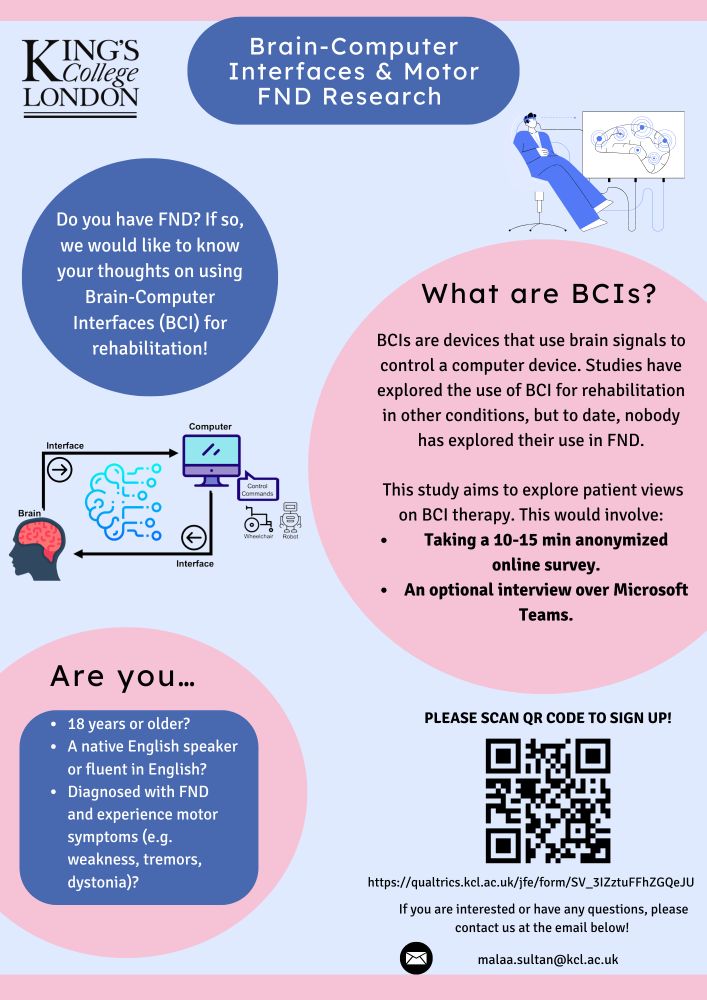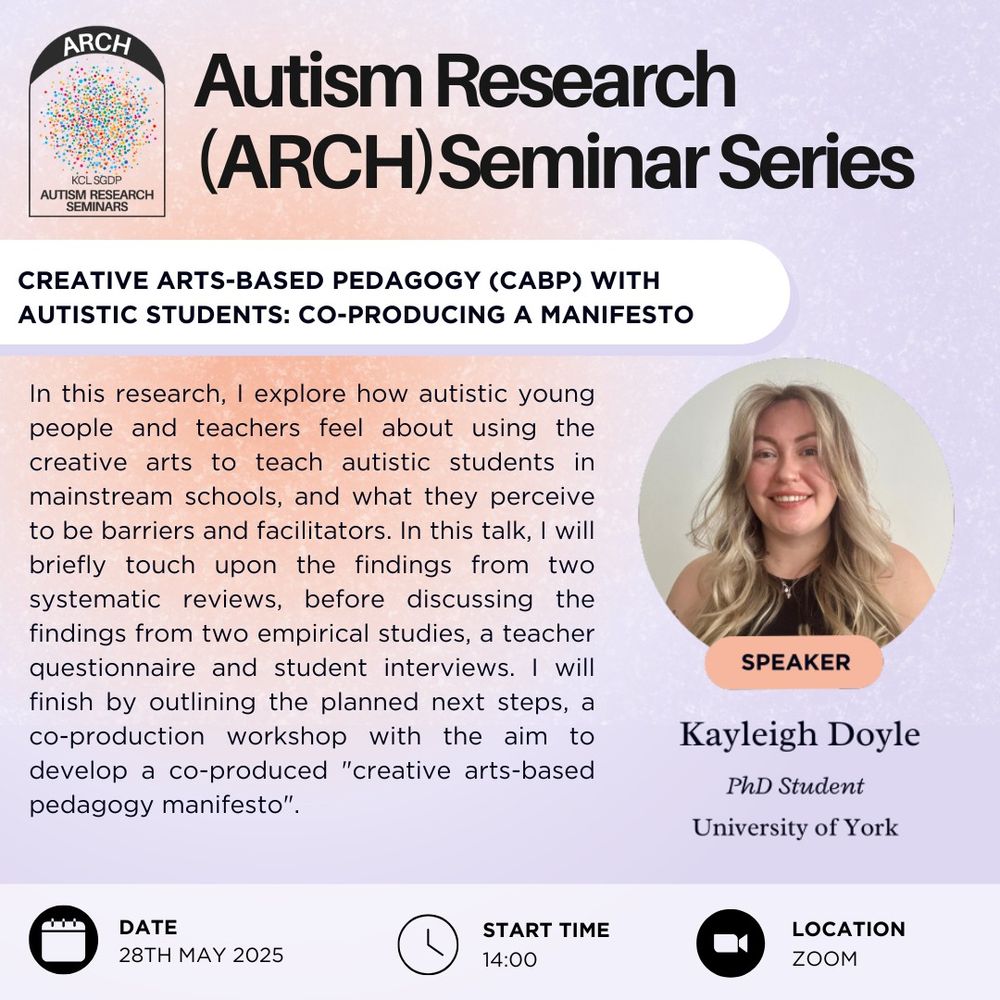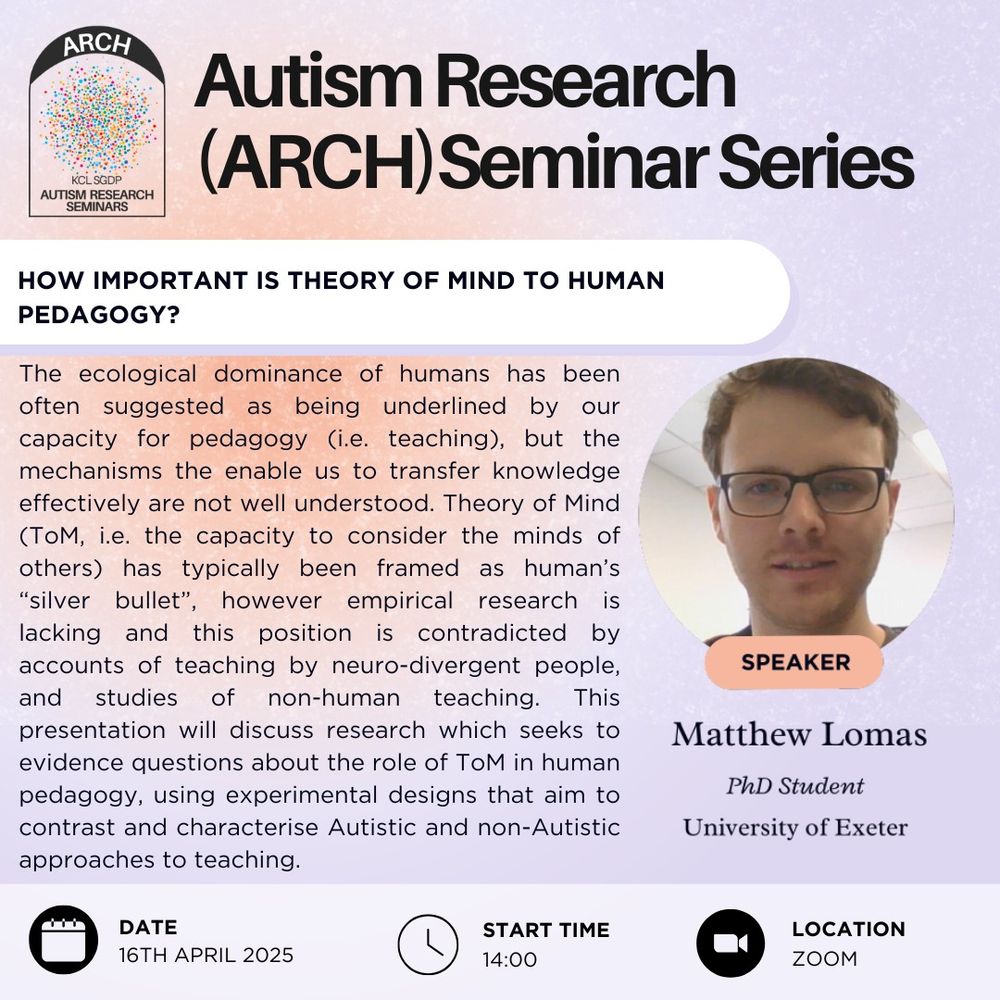Lily Smythe
@lilysmythe.bsky.social
370 followers
140 following
22 posts
PhD student interested in the co-occurrence of Functional Neurological Disorder and Autism. Part of NREG and Re:Spect Lab and based at the IoPPN, King's College London
Posts
Media
Videos
Starter Packs
Lily Smythe
@lilysmythe.bsky.social
· Sep 1
Lily Smythe
@lilysmythe.bsky.social
· Aug 11
Reposted by Lily Smythe
Reposted by Lily Smythe
Lily Smythe
@lilysmythe.bsky.social
· May 23
Reposted by Lily Smythe
Reposted by Lily Smythe
Reposted by Lily Smythe
Reposted by Lily Smythe
Lily Smythe
@lilysmythe.bsky.social
· Mar 24
Lily Smythe
@lilysmythe.bsky.social
· Mar 24
Lily Smythe
@lilysmythe.bsky.social
· Mar 24
Reposted by Lily Smythe
Frances Ryan
@francesryan.bsky.social
· Mar 19

These cruel benefit cuts will rob security from so many – but Labour will lose something crucial too | Frances Ryan
The worst reforms since George Osborne will teach voters that politicians really are all the same. Is it worth it? asks Guardian columnist Frances Ryan
www.theguardian.com

























